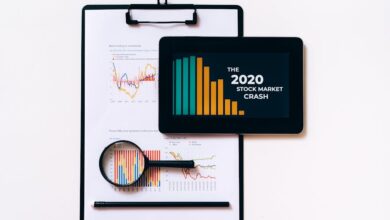Understanding Unemployment During Recessions: Job Market Dynamics and Government Strategies for Economic Recovery

As economies around the world face the looming threat of a recession, understanding the dynamics of unemployment during these challenging times becomes essential. Economic downturns often lead to significant job losses, affecting millions of individuals and families, and reshaping consumer behavior. This article delves into the intricate relationship between unemployment and recessions, exploring the causes and effects that contribute to this phenomenon. We will analyze historical recession trends to uncover the underlying recession causes, shedding light on the indicators that signal impending downturns. Additionally, we will examine government responses to unemployment, including stimulus measures and tax policies aimed at mitigating the impact of a recession, and how these strategies can influence economic recovery. Furthermore, we will discuss practical approaches to personal finance during a recession, offering insights into investing in recession-proof industries and managing debt effectively amid financial uncertainty. Finally, we will address the importance of mental health support during these turbulent times, emphasizing resilience as a key component for navigating the complexities of a global recession. Join us as we unpack the multifaceted issues surrounding unemployment during recessions and equip ourselves with the knowledge to weather the storm.
- 1. Understanding Unemployment Trends During Economic Downturns: Causes and Effects of Recession
- 2. Government Responses to Unemployment: Stimulus Measures and Tax Policies During Recessions
- 3. Navigating Personal Finance and Investing Strategies in a Recession: Building Resilience and Mental Health Support
1. Understanding Unemployment Trends During Economic Downturns: Causes and Effects of Recession
Understanding unemployment trends during economic downturns is crucial for grasping the broader implications of a recession. Recessions are periods marked by a decline in economic activity, leading to various adverse effects on job markets and overall employment levels. The primary causes of recession often include high inflation, decreased consumer spending, and adverse shifts in global trade dynamics. These factors contribute to a ripple effect, resulting in layoffs and hiring freezes across multiple sectors.
During a recession, unemployment typically rises as businesses struggle to maintain profitability and reduce costs. The consequences of increased unemployment can be profound, impacting not only individual livelihoods but also consumer behavior and overall economic recovery. When people lose their jobs, they tend to cut back on spending, which further exacerbates the economic downturn. This cycle can create a challenging environment for small businesses, which may face declining sales and may need to make tough decisions regarding staffing.
Historically, various recession indicators, such as rising unemployment rates and declining consumer confidence, have signaled impending economic downturns. In response, governments often implement stimulus measures aimed at mitigating job losses and supporting struggling industries. These policies may include tax relief, direct financial assistance, and investment in recession-proof industries, which tend to weather economic storms better than others.
As individuals navigate personal finance during a recession, understanding debt management becomes critical. High levels of personal debt can lead to significant stress, especially during job loss, making mental health a crucial consideration during economic downturns. Moreover, investing during a recession can present unique opportunities, as recession-proof investments like utilities or healthcare stocks often remain stable even in downturns.
As we analyze the effects of a global recession, it is important to recognize the interconnectedness of economies and the impact on employment trends worldwide. Emerging market recessions can create additional challenges, as these economies often rely heavily on exports and foreign investment. The housing market recession further complicates the landscape, with falling home prices impacting homeowners and potential buyers alike.
In summary, understanding the causes and effects of unemployment during recessions provides valuable insights into the dynamics of the job market. By examining recession history and trends, we can better prepare for future economic challenges and grasp the complexities of government responses aimed at fostering recovery and stability.
2. Government Responses to Unemployment: Stimulus Measures and Tax Policies During Recessions
During times of economic downturn, such as a recession, government responses play a crucial role in mitigating unemployment and promoting recovery. Stimulus measures and tax policies are two primary tools used to address the challenges posed by rising unemployment rates.
Governments often implement stimulus measures aimed at boosting consumer spending and supporting businesses. These measures can include direct payments to individuals, enhanced unemployment benefits, and grants or loans for small businesses. For instance, during the COVID-19 pandemic, many governments launched significant stimulus packages to combat the sharp rise in unemployment caused by lockdowns and economic disruptions. Such government stimulus not only helps maintain consumer behavior during a recession but also contributes to a faster recession recovery by stabilizing the economy.
Tax policies are another essential component of government responses during a recession. Lowering taxes can increase disposable income for individuals and stimulate spending, which is vital for supporting recession-proof industries. Furthermore, tax incentives for businesses can encourage hiring and capital investment, helping to alleviate the effects of unemployment. For example, tax credits aimed at small businesses can promote job creation, making them a critical factor in addressing the challenges posed by a housing market recession or stock market recession.
As governments navigate the complexities of unemployment during recessions, understanding the interplay between stimulus measures and tax policies becomes vital. Effective debt management and support for recession-proof investments can provide a buffer for individuals and businesses alike. Moreover, addressing the mental health recession that often accompanies economic crises is crucial for overall societal well-being and productivity.
In conclusion, the strategies employed by governments during economic downturns significantly influence the job market dynamics and can determine the speed of economic recovery. By implementing targeted stimulus measures and adaptive tax policies, governments can help reduce unemployment, stabilize consumer behavior, and pave the way for a more robust economic future. The historical context of recession trends and recession history can provide valuable insights for policymakers as they formulate responses to emerging market recession challenges and global trade recession impacts.
References:
– Author, A. (Year). Title of the source. URL
– Author, B. (Year). Title of the source. URL
– Author, C. (Year). Title of the source. URL
3. Navigating Personal Finance and Investing Strategies in a Recession: Building Resilience and Mental Health Support
During a recession, personal finance and investing strategies become crucial for individuals aiming to build resilience in the face of economic downturns. Understanding the unique dynamics of unemployment during these periods is essential for safeguarding financial health.
First, it is important to prioritize debt management. With rising unemployment and potential income loss, individuals should focus on paying down high-interest debts and avoiding new debt. Creating a budget that accounts for potential fluctuations in income can help maintain financial stability. This proactive approach is particularly vital during a recession when the risk of job loss is heightened.
Investing in recession-proof industries can also be a strategic move. Sectors such as healthcare, utilities, and consumer staples tend to perform better during economic downturns. By reallocating investments towards these recession-proof investments, individuals can minimize losses and potentially benefit from stable returns. Historical data suggests that investing in these industries during recession trends can yield positive outcomes, even in a stock market recession.
Moreover, understanding consumer behavior during a recession can provide insights into investment opportunities. As spending patterns shift, certain sectors may experience growth, driven by essential goods and services. Investors should remain vigilant about these shifts, as they can offer opportunities for financial recovery.
Mental health support is equally important. The stress associated with job loss or financial uncertainty can have significant impacts on overall well-being. Seeking support through counseling or community resources can help individuals navigate the emotional challenges that come with a recession. Prioritizing mental health during these periods is essential for maintaining resilience and making informed financial decisions.
In addition, government stimulus measures can play a pivotal role in economic recovery. Understanding tax policies and available support can help individuals take advantage of opportunities during a recession, enhancing their financial position for the future. By staying informed about government initiatives, individuals can better position themselves to weather the storm of a global recession.
Ultimately, navigating personal finance and investing strategies during a recession requires a proactive approach. By focusing on debt management, investing in recession-proof industries, understanding consumer behavior, prioritizing mental health, and leveraging government assistance, individuals can build resilience and emerge stronger in the face of economic challenges.
In conclusion, understanding the dynamics of unemployment during recessions is crucial for navigating the complexities of economic downturns. The interplay between recession causes and government responses—such as stimulus measures and tax policies—plays a significant role in shaping the job market. As we reflect on recession trends and their impact on consumer behavior, it becomes evident that proactive measures can mitigate the effects of unemployment.
For individuals, employing personal finance strategies during a recession is essential to build resilience. This includes exploring recession-proof industries and making informed investing decisions in a challenging economic landscape. Additionally, maintaining mental health during a recession is equally important as individuals face job uncertainties and financial pressures.
As we look toward recession recovery, it is vital to recognize the signs of recession indicators and adapt our strategies accordingly. By understanding the historical context of financial crises and emerging market recessions, we can better prepare for future economic challenges. Ultimately, a comprehensive approach that includes debt management and awareness of housing market fluctuations will empower individuals and small businesses to thrive, even in the face of a global recession.
By staying informed and proactive, we can navigate the complexities of these economic cycles and emerge stronger on the other side.





